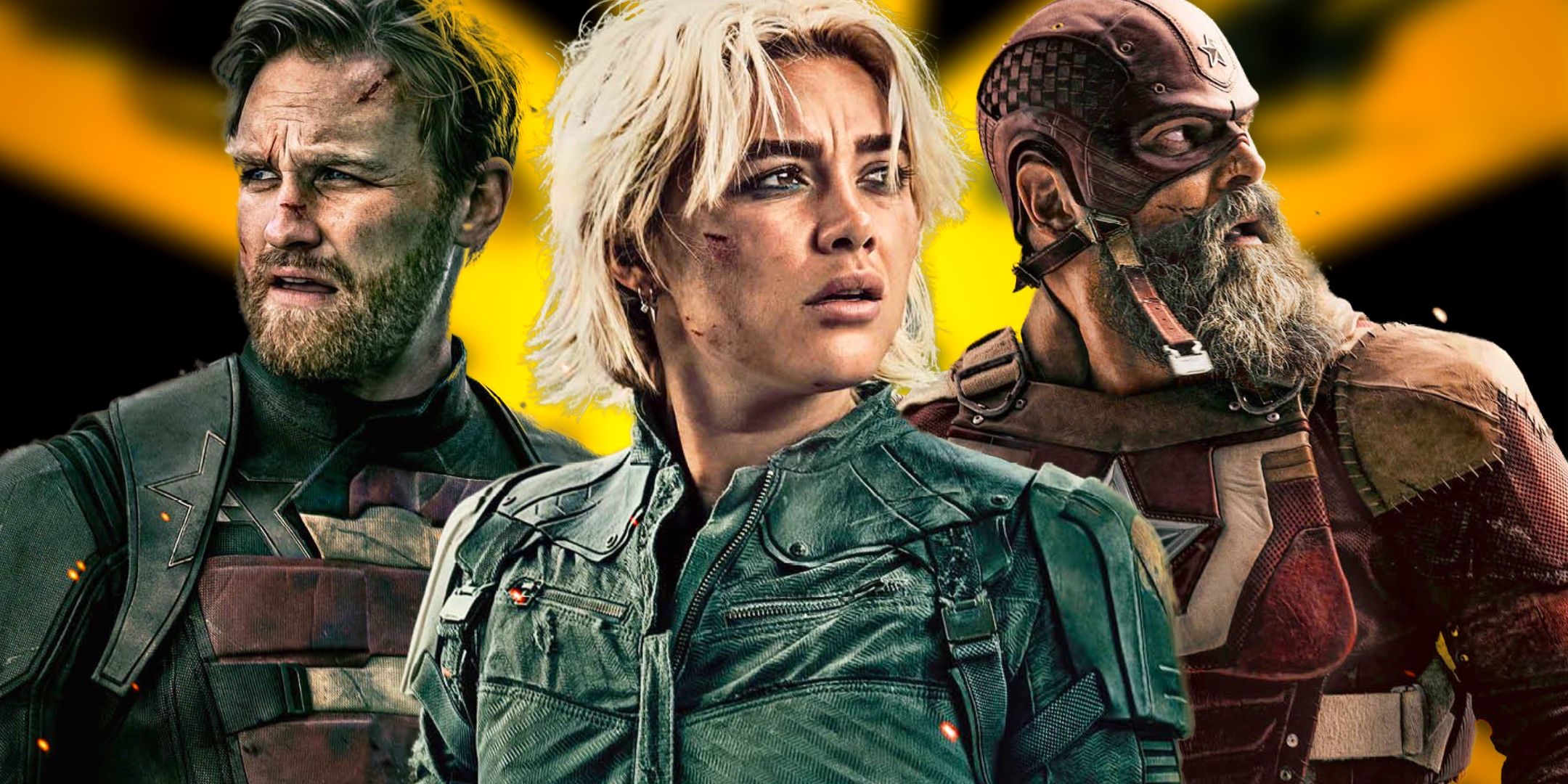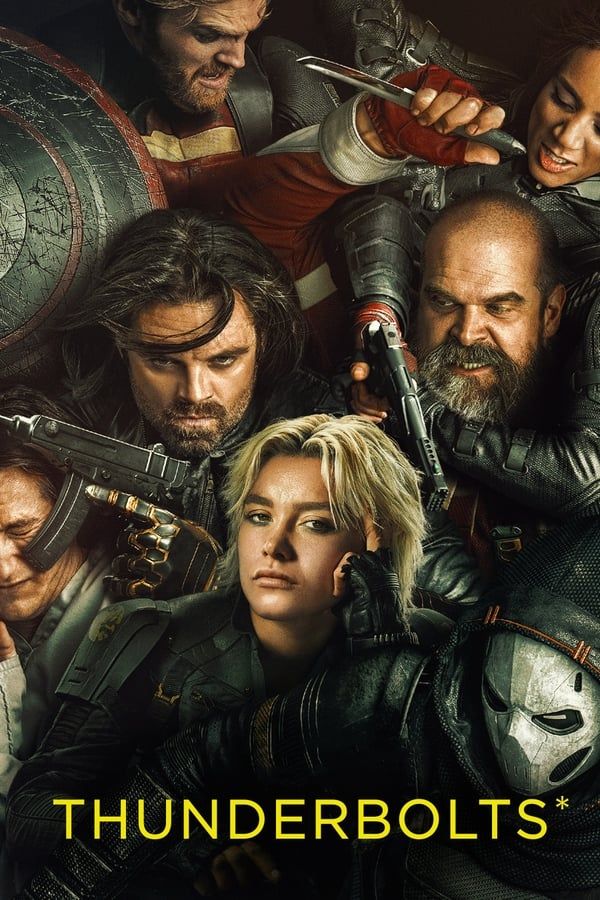Writer Eric Pearson reveals Thunderbolts* almost had John Walker replace Sentry and the Void as the MCU movie’s main villain. Lewis Pullman’s Robert Reynolds a.k.a. Sentry is both one of the most powerful and one of the most unique villains in Marvel movie history. Bob receives emotional support from the Thunderbolts in Thunderbolts*‘ ending, and he earns himself an honorary spot among the New Avengers in Thunderbolts*‘ post-credits scene, which sets the stage for Avengers: Doomsday.
In an exclusive interview with ScreenRant, Thunderbolts* writer Eric Pearson reveals that Wyatt Russell’s John Walker a.k.a. US Agent was the movie’s final villain at some point in development. According to Pearson, Val would have manipulated Walker into thinking his Super Soldier serum was “wearing off.” Similarly to Samuel Sterns does to President Ross in Captain America: Brave New World, Val would have enhanced Walker’s powers until “he was a time bomb.” However, Sentry suited Thunderbolts*‘ mental health themes much better, and John Walker remained a hero. Read Eric Pearson’s full comments below:
ScreenRant: One thing I love about this movie is that it has a deep message about mental health. I love that the climax of this film is really an emotional one. Was it written specifically to represent depression, or was it meant to more broadly be a symbol of internal struggles?
Eric Pearson: “That’s hard to answer because I wasn’t really thinking about theme in the moment. The original drafts of this had John Walker as the punching villain at the end. The idea was that part of Val’s manipulation was that she had told him that his serum was wearing off, and she was doing these medications to keep him going. In reality, he was a time bomb; a Hulk kind of thing. There was going to be a bit of a “Sun’s getting real low” moment because from the beginning of this, it was like, “I want to end our third act fight with a hug.”
That version was kind of fun, but ultimately didn’t work and didn’t feel right tone-wise. I had already kind of layered in the whole Breakfast Club thing, so I was like, “I want someone that they can’t beat in a punching fight and that they have to connect to in an emotional way.”
But back in the Marvel Writers program that I did in 2010 or 2011, I’d read the Sentry comics. In the comics, it’s like the golden God of Good vs. Pure Evil. But I was like, “What if it’s heroic ambition and self-esteem versus self-loathing and depression and loneliness?” He’s basically the entire journey for our heroes rolled into one entity. So, I put him in, and he fit so perfectly. Then it was all about finding and defining the Void space and stuff like that.
It’s one of those things that’s similar to Zemo, where the story in the comics is that the Sentry has so much power and is so great… He existed since the Golden Age and then realized he was a threat, so he erased his memory from everyone. It’s such a fun comic book idea that’s not going to translate into this movie very well, but you want to take as many elements as you can.
We took the memory loss, the duality of his character, and the fact that he was an experiment gone wrong. You want to just take as much to honor the comics, and then fit it into the movie world in the best way. And I take a lot of pride in that because it’s a hard thing to do and figure out the right way, so it doesn’t seem forced.”
Thunderbolts* Almost Looked Quite Different
Thunderbolts* could have looked quite different, as earlier versions of the movie changed several details. Steven Yeun was initially set to play Bob a.k.a. Sentry, Taskmaster originally survived and bonded with Ghost, Baron Zemo pulled the strings in secret at some point, and John Walker was almost Thunderbolts*‘ final villain. Jake Schreier’s Thunderbolts* is one of the best-reviewed Multiverse Saga installments so far, which suggests that every cut and modified detail was for the better.
Thunderbolts*’ Final Cut Sounds Like The Best Version Of The Movie
Sentry’s inner struggles make him the perfect villain for a movie with such a strong focus on mental health as Thunderbolts*. However, the fact that John Walker was Thunderbolts*‘ main villain at some point proves the creative team searched for the best possible version of the movie until they reached Thunderbolts* final script. While ideas like Val’s manipulation of John Walker and Baron Zemo’s secret antagonist role could have been entertaining, they simply didn’t fit the rest of the movie. Besides elevating Thunderbolts*‘ narrative themes, the Void’s MCU adaptation offers a fresh take on the villainous Marvel entity.

Related
Thunderbolts* 50 Marvel Easter Eggs & References Explained
Marvel’s Thunderbolts* features an impressive collection of Easter eggs, references, and connections to both the comics and the greater MCU.
Even Thunderbolts*‘ lack of a sequel set-up is a bold decision that promises to pay off soon. The Thunderbolts’ name change seems to abandon the comic book team in the MCU, but it suits every member of the team at this point in the timeline. Ultimately, Thunderbolts* gave previously overlooked antagonists like John Walker and Ghost a second chance, and Avengers: Doomsday will probably continue their redemption.

- Release Date
-
May 2, 2025
- Runtime
-
126 Minutes
- Director
-
Jake Schreier
- Writers
-
Eric Pearson, Joanna Calo
Upcoming MCU Movies
This story originally appeared on Screenrant


